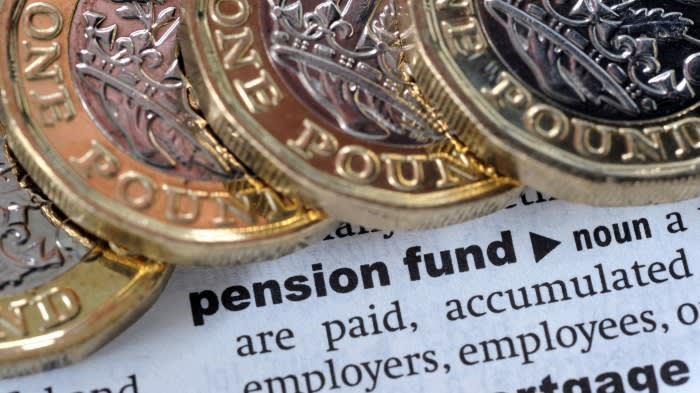Unlock the Editor’s Digest for free
Roula Khalaf, Editor of the FT, selects her favourite stories in this weekly newsletter.
Advisers are racing to rethink UK retirement savings plans after Rachel Reeves’ Budget set out an overhaul to how the government taxes pensions by bringing them under the inheritance tax regime from April 2027.
Inheritance tax planning has widely been based on savers drawing down their pension after other assets since the “pension freedom” changes of 2015, which enabled members of defined contribution schemes to access savings flexibly from the age of 55.
But that approach has been upended by the chancellor’s vow on Wednesday to remove a “loophole” that left pension funds exempt from inheritance tax (IHT) and increasingly allowed them to be used to transfer wealth between generations.
“The orthodoxy was to leave your pension until last, and that’s flipped around,” said Rob Morgan, chief analyst at wealth manager Charles Stanley. “Anyone who does inheritance tax planning in this area needs to revisit their plans in short order.”
Under Reeves’ measures — which will raise £1.46bn a year by April 2030, according to government estimates — inherited pensions face double taxation if the saver is 75 or older when they die.
In addition to falling in scope of IHT, which is charged at 40 per cent, inheritors of pensions pay income tax on the proceeds at 20 per cent, 40 per cent or 45 per cent depending on whether they pay the basic, higher or additional rate.
This could amount to a total levy of up to 52 per cent for basic rate taxpayers, rising to 67 per cent for additional rate taxpayers.
Income tax is not levied on the pension of savers who die before turning 75.
Reeves’ announcement is a blow to savers who transferred out of defined benefit pension schemes — which promise guaranteed pensions calculated on salary and length of service — to take advantage of IHT benefits of DC schemes from 2015.
Tom McPhail, director of public affairs at consultancy The Lang Cat, said people who had done so were “going to be pretty disappointed”, adding that the “long-term benefits of substantial pensions pots will become very questionable.”
Pension transfers to spouses and civil partners will remain exempt from IHT — a decision that could prompt unmarried couples to tie the knot, according to advisers.
Gary Smith, financial planner at wealth manager Evelyn Partners, predicted more Britons would make gifts or spend more of their pension savings to avoid double taxation on death. More savers might alternatively allow their spouse to inherit their pension free of tax before a gift is made, he said.
“Rachel Reeves has been very clever; she needed to do this to drive behaviour,” Smith added of the IHT reforms, with a potential surge of money taken out of pensions likely to boost income tax receipts.
Income tax is payable on money taken out of a pension that is in excess of the tax-free personal allowance, now set at £12,570, but a gift can still be made free of tax if a person lives for more than seven years after doing so.
To lower tax bills in the long term, more savers could also choose to take 25 per cent tax-free on pensions payments, rather than taking a 25 per cent tax-free lump sum — an option popular among those planning to leave the remainder in their estate.
Mike Ambery, savings director at Standard Life, said the pensions company had been contacted by customers on Thursday who wanted to know if they could reverse a decision to take out their tax-free lump sum early, so that the remaining tax-free funds could benefit from compound interest.
Such a move “may be possible”, depending on when a saver had withdrawn from their savings pot, but would be “extremely complicated”, Ambery said.
McPhail said the changes would also likely lead to a “big rise” in the number of people taking out annuities, which have a guaranteed income, because they would look “more attractive to optimise the lifetime value of the money” rather than face a double tax charge.
